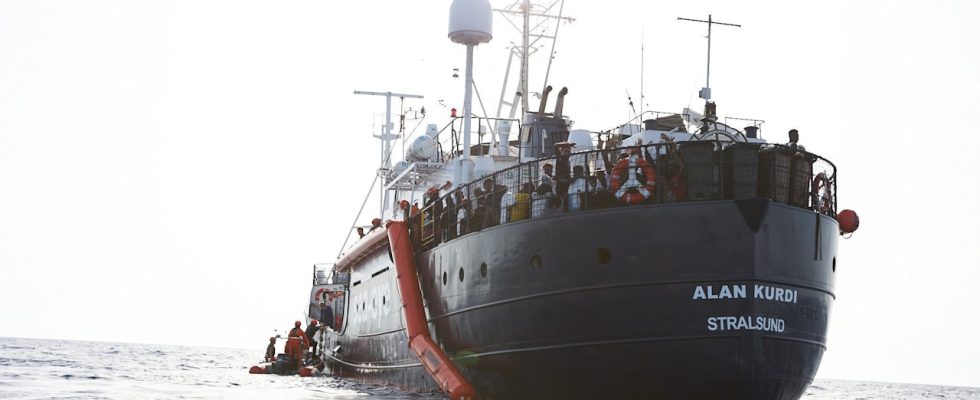It is one of the most sensitive questions of the next federal budget: Will Germany continue to finance the private “emergency rescuers” on the Mediterranean?
According to BILD information, the federal government wants to stop the payments next year!
▶︎ In 2023, the Foreign Office of Foreign Minister Annalena Baerbock (42, Green Party) paid the organizations two million euros.
Italy’s Prime Minister Giorgia Meloni (46) accuses Germany of using the payments to the maritime distress activists to boost the smugglers’ business. On Friday she met Olaf Scholz for a one-on-one discussion
But this payment to the clubs that go out on their ships, pick up refugees and usually bring them to Italy is highly controversial. Italy’s ultra-right Prime Minister Giorgia Meloni (46) is furious and accuses Germany of using this method to boost traffickers’ business.
Chancellery is against further payment
Apparently the federal government is reacting. In the 2023 budget, the Foreign Office also stated that the “sea rescuers” should receive two million. The Green parliamentary group in particular put pressure on the money to actually be paid out.
Now the about-face: When preparing the budget for 2024, the Foreign Office did NOT include the note about the two million for the “sea rescuers” again. Budget committee circles told BILD: “This was not an oversight. The Chancellery is against further payment, the Foreign Office sees it similarly.”
However, when it comes to money, it is not the government, but rather Parliament that has the final say. And according to BILD information, there is already pressure from the Green group for the “sea rescuer” note to be included again in the budget for next year.
▶︎ In two weeks, the head housekeepers at Ampel will discuss the Baerbock budget. The budget committee’s adjustment meeting will take place in mid-November, in which the 2024 financial plan will be finalized. Then it will finally be clear whether the “sea rescuers” will continue to receive tax money from Germany or not.
What Chancellor Olaf Scholz (65, SPD) and his foreign minister want to further support: aid organizations that take care of the care of refugees who are already on land.
One-on-one conversation between Scholz and Meloni
On Friday afternoon, Scholz met with Meloni for a confidential one-on-one discussion on the sidelines of the EU summit in Granada. The most important topic: the migration crisis.
And apparently the two have also sorted out the anger surrounding the “sea rescuers”. Scholz praised the intensive discussions and the pragmatic agreements. In the asylum crisis, Germany and Italy worked “not against each other, but with each other”.
Scholz made it clear that he doesn’t believe in financing the “sea rescuers”. Referring to the “sea rescuer” note from the 2023 budget, he said: “I did not submit the application.” In plain language this means: That was Parliament, against its will.
Now the government will have to fight with the traffic light MPs, especially the Green parliamentary group, so that they do not write the millions in taxes for the sea distress activists back into the budget. Because otherwise Germany could face massive trouble with Meloni.
A householder told BILD: “The fact that Italy has agreed to the new European asylum system suggests that the federal government has signaled to Meloni: next year there will be an end to the financing of sea rescuers.”

